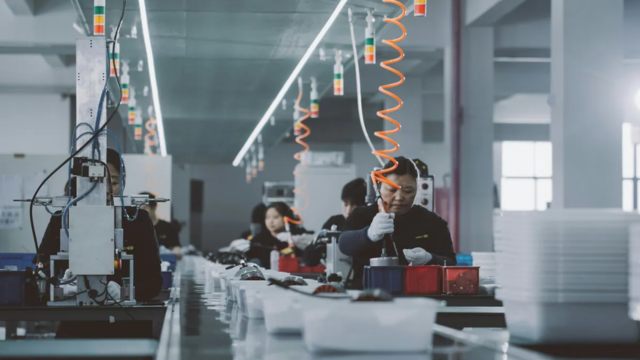CHARLEROI, PA. — Men and women had jobs, families had food on the table, society was strong, churches were full, and the tax base kept the schools alive and the community prosperous for 132 years. The sound of the factory air whistle signalling the start of the workday at the plant along 8th and McKean Avenue in this Washington County borough meant all the things we associate with work.
It sounded good.
It stood for security and hope.
It never seemed to bother anyone around here.
That whistle didn’t sound the same last week.
To be exact, it took 132 seconds longer. That number was meant to show how many years the Pyrex glass plant had been here.
For the plant, it meant the end of the queue.
The sound that echoed through the Mon Valley was sad.
A time when people did well
In a town of 4,200 people, 300 men and women are now out of work.
The company, which is now called Corelle Brands, said in September that it was going to close the plant that was one of the most innovative when it opened. The Thomas Evans & Company and the George Macbeth Company, two Pittsburgh glass-making companies, merged in 1899 to form the Macbeth-Evans Glass Company.
After a year, the local newspaper was proud of how manufacturing had grown in Western Pennsylvania.
At the turn of the century, more than 8,000 people worked in factories along a 16-mile strip in what used to be quiet countryside. They were paid well.
Almost overnight, hundreds of different kinds of houses were built on rolling hills with views of the plants. This created a lot of jobs for real estate developers and building workers and boosted the number of small grocery stores, petrol stations, barber shops, schools and churches.
By 1936, Corning Glass Works had bought Macbeth-Evans. At that time, Corning Glass Works was the biggest company that made advanced glassware.
Around 1,800 people worked at the plant at the time of the merger.
It was such big news that on November 11, 1936, it was above the fold on the front page of the Pittsburgh Post-Gazette.
All of those mills are no longer there.
The company that used to make glass, Pittsburgh Plate Glass (PPG), no longer does so. My dad worked there for 50 years and built the furnaces that made glass.
In 2017, they sold that part of the business to Nippon Electric Glass. This was the end of PPG’s long history of making glass, which started in 1883.
In the meantime, Anchor Hocking Glassware bought the Charleroi plant in March 2024 and said they would shut it down and move their operations to their plant in Lancaster, Ohio. Like Charleroi, Anchor Hocking Glassware was started in Lancaster by Isaac Jacob in the early 1900s.
Anchor Hocking has been bought out, owned by venture capitalists, and even gone bankrupt several times.
That company is now owned by Monomoy Capital Partners, a private equity business in Midtown Manhattan.
Since Trump was re-elected in 2024, we’ve talked a lot about tariffs, manufacturing, and how China plays an overly large part in our industries. The Corning Glass Works Macbeth-Evans Division is a great example of this.
In fact, our unfair trade has been a big reason why glass factories in this country have shut down.
US business was hit hard
Before the 1990s, the United States was able to make good glass.
But China’s aggressive export plan, which sent a lot of goods to the US market, was very bad for the glass industry.
The Alliance for American Manufacturing put out a report in June of last year that talked about how Chinese imports were bad for US producers.
The glass business seemed to know a lot about the risks of Chinese imports in a briefing by the Economic Policy Institute.
They were aware that between 2000 and 2008, the US glass business lost nearly 40,000 manufacturing jobs.
The US market share of China went from 3% to 31% at the same time.
As US glass and glassware factories shut down, Chinese ones grew.
China now makes more glass than any other country in the world. It exports 28.7% of the world’s glass and glassware, while the US only exports 6.6%.
If you are from Charleroi, which used to be called the “Glass City” and was home to one of PPG’s main glass factories, that is a tough pill to take.
Not only is simplifying production bad for these people, but China also has too much power in the market.
“Part of the problem is that so much stuff comes from China and ends up in our market.” State Sen. Camera Bartolotta, who is from the town, called it a disease.
The whistle’s sound is still there. The workers on their last shift can’t stop crying.
Things have changed.
People who think Americans don’t want factory jobs or don’t take pride in what they do should spend some time with the people who worked here.





More Stories
U.S. Glass Industry Struggles as China Floods Market with Cheap Exports
U.S. Glass Industry Struggles as China Floods Market with Cheap Exports
U.S. Glass Industry Struggles as China Floods Market with Cheap Exports